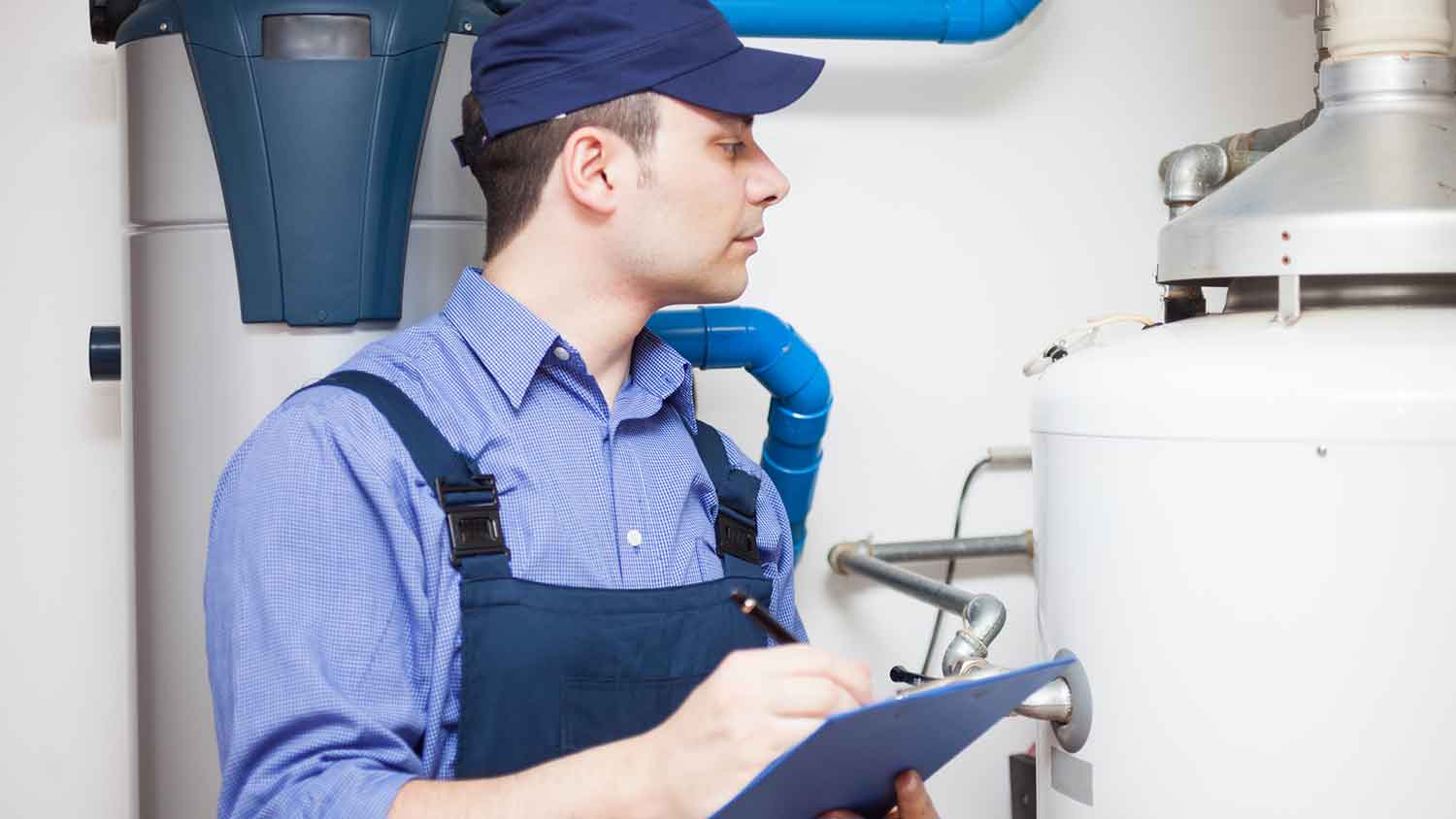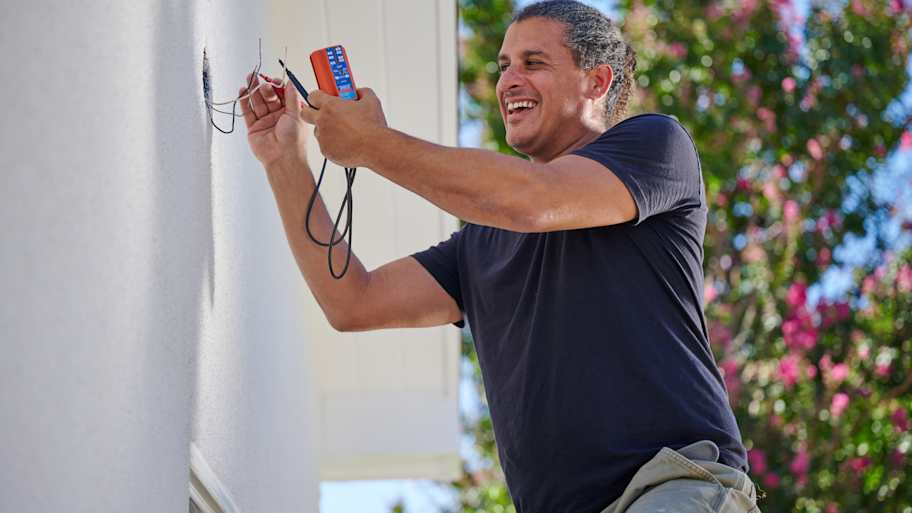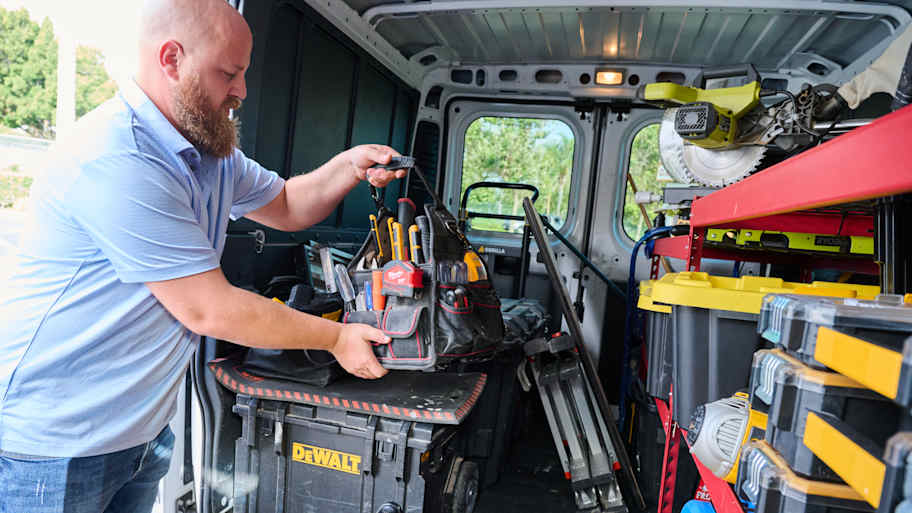What Size Breaker for a Water Heater Is Best?
Learn how to calculate the right water heater breaker size to avoid costly problems


Circuit breakers that aren't sized properly can lead to expensive damage.
The NEC requires circuit breakers to be sized at 125% of the intended load.
Most residential water heaters require a 30-amp circuit breaker.
Water heaters draw quite a bit of electricity during operation, so they need a breaker size that can adequately meet their demands. Breakers that are too small for the water heater will frequently trip, turning your water heater off, while breakers that are too large won't trip when they should, which can lead to fires and other damage. Use this guide to learn everything you need to know to find the right breaker size for your water heater.
What's the Role of a Circuit Breaker for a Water Heater?
Circuit breakers can help to prevent electrical overloads and short circuits. They work by interrupting the flow of electricity when they find that the circuit has faulted or overloaded. Circuit breakers can help to prevent costly and potentially dangerous problems, like fires, equipment damage, and other electrical hazards.
Why Does the Circuit Breaker's Size Matter?
If a circuit breaker isn't properly sized for your water heater's wattage and voltage requirements, it can lead to safety problems. Breakers that are too small will cause the water heater breaker to trip too often, which means it will turn your water heater off even if it's functioning properly. And breakers that are too large won't trip when they should, which can lead to electrical fires.
Plus, under- and oversized breakers will make your water heater less efficient. So finding the right size can help you save on your monthly energy bills.
Factors That Affect Breaker Sizing

Voltage Rating: Water heaters have voltage ratings, which impact how much amperage they need to operate. Most residential water heaters operate at 240 volts, or 240V.
Wattage Rating: Your water heater's wattage refers to the amount of electrical power it uses to operate. This rating will directly impact the size of the breaker you need.
Amperage: Amperage refers to how much electricity a water heater draws to operate. This rating will also impact what size breaker you need.
Continuous Load: Since water heaters often operate for three hours or more at a time, they're considered continuous load devices. The National Electric Code (NEC) mandates that continuous load circuits shouldn't be loaded to more than 80% of the breaker's amperage rating.
Wire Gauge: Different wire gauges, or sizes, can handle different amperages. So the size of the wires that connect your water heater to the breaker can affect what size breaker you need.
Electrical Codes: Some buildings and municipalities require certain breaker sizes to ensure safety. Before investing in a breaker, contact your local authority to learn about any electrical code requirements.
Ambient Temperature: The ambient temperature, aka the temperature of the environment that surrounds your breaker, can affect its performance, so make sure the breaker you choose is designed for the temperature ranges of the room where you install it.
Presence of Other Loads: If other household systems or appliances are sharing your water heater's breaker, you'll need to factor their electrical draw into the circuit breaker size in addition to the water heater's draw.
How to Calculate the Right Size Circuit Breaker
There are a few steps you can take to calculate the right size circuit breaker. You can also hire a local water heater pro to help you if you’re not up for the task.
1. Find the Water Heater's Voltage and Wattage Ratings
You'll need the voltage and wattage ratings to calculate amperage. You can typically find these ratings in the water heater's manual, on a sticker attached to the tank, or on the thermostat.
2. Calculate the Amperage
Once you have the water heater's voltage and wattage ratings, you can find its amperage by dividing the wattage by the voltage. So if your water heater has a 5,000 wattage rating and 240 voltage, you'd divide 5,000 by 240 to arrive at 20.83 amps.
3. Calculate the Breaker Size
The NEC Code dictates that a circuit breaker must be sized at 125% of the intended load. So, whatever figure you arrived at during step two, you'd multiply by 1.25 to find your breaker size. For example, a water heater that uses 20.83 amps will require a circuit breaker of at least 26.03 amps since 20.83 x 1.25 = 26.03.
Common Breaker Sizes by Gallon
Most residential water heaters require a 30-amp circuit breaker. But if your water heater has a 90-gallon capacity or more, you might need a bigger one. Here's a breakdown of common circuit breaker sizes based on gallon capacity.
| Water Heater Size | Circuit Breaker Size |
|---|---|
| 10 gallon water heater | 20 or 30 amps |
| 20 gallon water heater | 20 or 30 amps |
| 30 gallon water heater | 30 amps |
| 40 gallon water heater | 30 amps |
| 50 gallon water heater | 30 amps |
| 60 gallon water heater | 30 amps |
| 70 gallon water heater | 30 amps |
| 80 gallon water heater | 30 amps |
| 90 gallon water heater | 30 or 40 amps |
| 100 gallon water heater | 30 or 40 amps |
Frequently Asked Questions
Installing a circuit breaker is best handled by a local professional electrician. This project requires following strict electrical codes, and might even involve permits. Not only can electrical work be dangerous, but without the proper training that a pro will have, you could cause further damage to your home’s electrical system.
It's recommended that you only use your circuit breaker for your water heater. Tacking on additional appliances, especially large ones like refrigerators, can overload the circuit and lead to electrical fires. Therefore, it's best to have separate circuits for each major appliance, particularly continuous load appliances, which use a lot of energy over prolonged periods of time.
The average cost to install a circuit breaker is $700, but the price varies quite a bit based on factors like the project's complexity and any permit fees. For instance, if your pro needs to open walls and run all new wires, it can cost more than if they only need to replace the existing circuit breaker, which already has wiring, with a new one.
Knowing if and when your circuit breaker is failing or faulty can prevent costly damage. If you notice any of the following signs, call a local electrician to help.
The breaker frequently trips
The breaker doesn't stay in the 'on' position or reset properly
You hear buzzing or humming noises coming from the breaker
There's discoloration around the breaker switch
There's a burning smell or visible signs of damage on the breaker
If you are having trouble determining the right breaker size for your water heater, it is a great idea to contact an electrician near you to help. They can help you determine the best option for your home and install the circuit breaker for you, ensuring that you have all the proper permits and that your circuit breaker won’t overload, which could lead to fire and other damage.





- Home Generator Repair
- Lamp Repair
- Electric Repair
- Generator Installation
- TV Antenna Services
- Emergency Electricians
- Commercial Electricians
- Attic Fan Installation
- Attic Fan Repair
- Exhaust Fan Installation
- Electric Inspectors
- Subcontractors
- Electrical Construction
- EV Charger Installer
- Chandelier Installation
- Doorbell Installation
- Bathroom Fan Installation
- Ring Installers
- Electrical Panel Upgrade
- Why the Water Heater Keeps Tripping Breaker
- How to Replace a Circuit Breaker: A Complete Guide
- How to Tell if a Circuit Breaker Is Bad (and What to Do About It)
- Is It Dangerous If a Circuit Breaker Keeps Tripping?
- How Does a Circuit Breaker Work?
- 5 Reasons Why Your Appliance Keeps Tripping Your Circuit Breaker
- How to Tell If a Breaker Is Tripped: Everything You Need to Know
- Why Your Hot Water Isn’t Working—And What to Do About It
- Does Your AC Circuit Breaker Keep Tripping? Here’s Who to Call
- Why My Breaker Switch Won’t Stay On and How to Fix It










